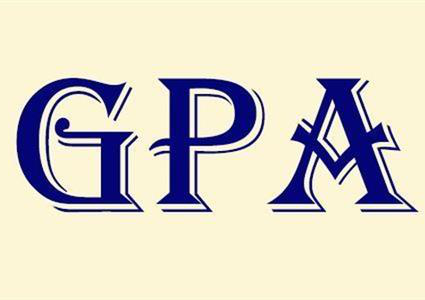
美国论文代写服务机构,提供高质量的 Assignment代写 、Paper代写、Report代写服务,留学生Essay作业及论文代写代做,美国、英国、澳洲、加拿大Essay代写,专业的写手,有需要加我微信:dueessa..
EG1hao 立即咨询发布时间:2021-01-15 热度:
美国论文代写服务机构,提供高质量的Assignment代写、Paper代写、Report代写服务,留学生Essay作业及论文代写代做,美国、英国、澳洲、加拿大Essay代写,专业的写手,有需要加我微信:唯一网址:www.mingxinwrite.com03
本文是留学生Accounting Assignment代写范文,主要内容针对2008年全球金融危机所产生的影响,对会计准则变更及其作用进行分析。
Proposed Research Topic: IAS 39 and IFRS 9: the effects of changing accounting standards for financial instruments on the financial assets management of a commercial bank in Chong qing
Background:
In 2008, a catastrophic financial crisis ignited by the bankruptcy of Lehman Brothers Holdings soon had a full scale break-out and dragged the world from prosperous growth to excruciating abyss of stagnation, even recession. People in business and academic community took a great number of serious discussions striving to find the causes of the financial crisis. It is widely agreed that the lack of transparency in banks and investment houses which increased their risks is one of the major driving forces of the crisis(Compton, 2012). It is argued by Rohde(2011) that the abuse of financial instruments is to blame for the lack of transparency. Accountancy, as a practical subject meant to make organizations more transparent via clear and correct financial reports therefore is closely linked to the solution to the financial crisis. One year after the crisis, world leaders declared that improvements in financial report were needed at the G20 summits.(Chan, 2010)

In 2009, in response to the demand for improved financial reports, the new IFRS 9 was published as the replacement for IAS 39 to serve the purpose of regulating accountancy for financial instruments(IFRS, 2009; Chan, 2010). Some noticeable changes were made by IASB(international accounting standards board) to the new standards, particularly the classification of financial assets. IAS classify financial assets into 4 measurement groups, which is considered by Chan(2010) as one of the its drawbacks resulting in unnecessary complexity and internal inconsistency. However, according to IFRS 9, the number of categories is largely simplified and is cut down from 4 to 2: amortize cost and fair value. Currently, business organizations can choose which standards they would like to apply because the mandatory effective date of IFRS was canceled already(IFRS, 2009). What effects could the differences between the 2 standards exert on banks’a management of financial assets remains unknown. It has not been sufficiently studied in accounting literature yet. Although some studies are made with regard to IAS or IFRS as a whole, none of them are specifically on IFRS 9, let alone its effects on financial assets management. A study as this one is hence needed to fill in this gap.
One of the main features of international accounting standards regardless of IAS9, IFRS 9, or their earlier predecessors is the steady status of fair value measurement. Despite that a lot of measurement categories are added to or removed from in amendments occurred since the establishment of one universal international accounting standards system, fair value measurement seems to stand unshakably in the center of measurement for financial instruments. Thus, this paper will mainly focus on fair value to discuss whether or not it is changed in the new standards and what influence those changes have on a bank’s financial assets management, which can better our understanding in the relationship between accounting standards and practical management. This paper is helpful not only to expand the accounting literature, but also to improve bankers’ assets management in precaution of the risk of another financial crisis. In a word, my research is worth doing academically and practically.
The purpose of my paper is to identify the effects of changing financial standards on the assets management of a bank by interviewing its managers and examining its financial conditions before and after its accounting policy shifted from IAS 39 to IFRS 9. To achieve that, I set 3 research objectives. Firstly, my paper aims to find out the difference between IAS 39 and IFRS 9, particularly the changes made to the fair value measurement. Secondly, my paper tries to identify the effects of adopting IFRS 9 on Chong qing Bank’s financial assets management in replacement for IAS 39. Thirdly, my paper will make critical comment on whether those effects are positive or negative comparing with previous years when IAS was applied in the hope of providing some useful experience to other banks.
Literature review:
The number of existing researches on the new IFRS 9 is extremely limited and can hardly be found for it was published just 4 years ago as an incomplete demo to be tested and improved, awaiting continuous amendments. It takes time before it is as applicable as IAS 9, when a great amount of researches then can be expected due to mass usage of IFRS in business institutes. Fortunately, there are a number of studies on the IFRS as a whole and IAS No. 39. Carmona & Trombetta(2008) got a panorama overview on IFRS and IAS, and proceeded to explain the difficulty of world-wide adoption of those standards owing to nature of highly diverse conditions in different individual countries, which leads to a conclusion that rule based standards are probably more acceptable than principles based ones to widespread a universal standards system across the world. Despite the insightful discovery they made, they did not focus enough attention on the obvious differences between IFRS and IAS. To the contrary, what they try to emphasize is the similarities instead of differences between those two standards. As a supplementary to the previous accounting literature, Wang(2010) made a thorough comparison between the two standards and noted the difference of classifications for financial assets which is covered by IAS 39 and IFRS 9 that matters a lot to financial assets management. However, she was one step away from getting the full picture, but stopped at that point and did not make further explorations concerning the effects of the differences in standards on banking management, which leaves her research unfortunately incomprehensive. The study on this topic has 2 dimensions: regulations, and the objectives those regulations exert effects on. Neglecting either of them would flaw the whole study. Armstrong and his collegues (2010) contributed to the literature by examining the objectives of accounting regulations. They studied business institutes’ reaction to the adoption of IFRS in Europe, which can made a worthy comparison with Chong qing companies that my paper is about to study. Morris and Sellon(1991) are among those first to focus on the relationship between accounting standards and financial assets management. They noted that a bank’s true assets (Morris and Sellon, 1991) can be best reflected by fair value based accounting practice. Their pioneering work was seconded by Barth(1994) who argues that accounting based on fair is helpful to improve a bank’s management by clarifying the true value of financial assets to the top management. He took a critical strep and brought accounting standard on to the managerial level. Although having laid down the fundamental base for my study, both of their researches share a fatal flaw of being too outdated. The world has witnessed too many tremendous changes including the financial crisis to fit in their theory’s framework developed in the early 1990s. Their theory fails to be applied to lately invented financial instruments, particularly financial derivatives. More researches close to today’s reality are needed, which is another justification for the rationale of my research.
Methodology and methods:方法论
I intend to conduct an interpretive, inductive, empirical and qualitative research on this topic. The method adopted is cases study carried out via techniques including observing the company and taking interviews. Chong qing Bank in Chong qing is selected as the case study company for it is one of the first to answer IASB’s call to adopt IFRS. Given the geographic limitations and the cost to fly to Chong qing, semi-structured telephone interviews will be held to managers of Chong qing Bank Limited containing questions on their thoughts before and after IAS 39 was replaced by IFRS 39. Information about the company is to be thoroughly observed, particularly its capital adequacy ratio before and after IFRS was adopted, which can reflect its
financial assets management in the period of changing accounting policy to a certain extent. The entire data collect by my case study and interviews is original primary data, except capital adequacy ratio, which is secondary data since it can be found in the company’s annual reports. Most of the data are qualitative as they are questions regarding people’s attitudes, beliefs, thoughts that cannot be quantified. However, the capital adequacy ratio is quantitative.
The way my research is done is to acquire knowledge by making empirical observations and finding empirical evidences rather than establishing pure theoretical framework on a predetermined hypothesis. All the 3 research objectives listed before are about making empirical observations. Therefor the case study method is very suitable to serve my research objectives. As claimed by Robson(2002), case study is ‘A strategy for doing research which involves an empirical investigation’. The reason I employ the technique of interview is that interviews are very useful to collect empirical information. It is an empirical research method. A semi-structured interview by telephone would allow me to explore unexpected issues by holding relatively casual conversation consisted of not fully predetermined questions, and to build personal rapport with the interviewees that might be helpful to make some in-depth findings. In a word, the empirical, interpretive nature of my study that requires original primary data and close observations determines the research methods I chose.
Content analysis will be used on the main data analyzing tool to measure the frequency of certain key words and notions respondents mentioned in interviews. The data collected is not generalizable because they are predominantly qualitative information of a single individual company without statistical representativeness. But the data is of legitimate validity and reliability since they are authentically collected from a company in its practical daily operations. If anyone is to repeat my research on the same company, the out-come would be of no difference.
Potential difficulties I can anticipate in this research are mainly geographically related. The location of me, namely UK, is too far away from the objective in Chong qing I am about to observe. This limitation is likely to cause a series of difficulties including the hardship of getting contact with the informants and inaccuracy of observations which are not made in person directly. Another difficulty is the willing of managers to receiving my interviews. In order to get a sufficient number of respondents, I plan to set certain incentive prizes for answering my questions. The research will mainly be funded by myself, though I will not give up the opportunity of being sponsored by the university. Application for research funds will be submitted to Royal Holloway before the research begins. However, those difficulties above can be overcome and minimalized as long as my research is well designed. Flying to Chong qing is reserved as the last resort if things get out of my control. The time scale of my research is 3months. The detailed time table is listed below:
Timetable:
Prepare the interview questions by 1 March
Complete literature review by 10 April
Conduct interviews by 10 May
Complete data analysis by 12 May
Give presentation on 23 June
Complete the final dissertation by 20 June

在线获取有关会计作业的代写 有了DueEssay,很容易在网上找到会计assignment代写。这是因为我们的作者知道如何完成复杂的帐户问题和平衡您的书籍。无论您是处理应收账款还是应...

最专业Math Assignment 代写 众人皆知理科难,数学更难。 你是否曾经问过自己我能信任谁来帮我解决数学作业? 又或者是谁愿意帮我做数学作业?信不信由你,并非只有你一个人在思...

DueEssay论文代写平台小编给您推荐 理科assignment 写作神器,用过都说好。 留学生们在写英文论文的时候如果能有一些图表数据说明的话更能够让教授信服,毕竟数据图表是有很强...


微信客服
山东济南市历下区三庆财富中心

QQ客服